Graham Reid | | 5 min read
David Thomas: Who is it?

Blame punk’s redrawing of the map -
or Yoko Ono, or the much more irritating Celine Dion if you will --
but the limits of our tolerance to the human voice have certainly
shifted over the past few decades.
We can now listen with impunity to
Natacha Atlas’ careening Arabic trip-hop as much as be in awe of
Whitney Houston’s lung capacity, or delight in the qawwali music of
the late Sufi master-singer Nusrat Fateh Ali Khan.
A couple of years ago I was impressed when
I saw Chris Knox front a band at the Laneway Festival in Auckland and
snarl and roar his way through a short but terrific set: Knox has had
a stroke and so cannot “speak”. But he sure could “sing” and
people loved it, not just for his courage. It actually made weird
sense from a man who always challenged preconceptions.
So with people like the Inuit artist
Tagaq ready to mess up our minds with their “singing”, when did
this shift in popular culture begin?
Bob Dylan has been one of the many who
have redefined the limits of the public, human voice. Hearing him
sawing away nasally allowed Jimi Hendrix the confidence to sing (and
he could) and set new, some would say lower, thresholds. Hence early
and whiny Neil Young.
And one need only think of Kate Bush’s
alarming arrival on the scene back in the late Seventies with the
octave-ignoring Wuthering Heights, the peculiar career of Leo Sayer,
or Johnny Rotten’s sneering delivery.
No-talent singers (recent Ringo)
are a different category, of course. And it’s immaterial that most
people in rock bands can’t “sing” in the traditional sense.
Indeed Jordan Luck of the Exponents once picked up an award for best
vocalist, much to his delight and amusement.
“But I can't sing,” he said.
Few complain when Marianne Faithfull,
Tom Waits, Leonard Cohen or Mark Knopfler take their “distinctive”
style to their own work, written within the limits of their range.
There have always been the oddities:
Tiny Tim’s worryingly high falsetto, Lee Marvin growling Wandering
Star from the basement of his belly, David Surkamp from Pavlov's Dog, Whatsisname from Supertramp and
that equally irritating bloke who sang with Yes . . .
The recent emergence of “world music"
may simply be ethno-tourism for some, but it has opened our ears to
the diversity of the human voice. And it’s diverse out there, all
right.
Today there are something like 150
Frank Zappa CDs released, the complete works of Yoko Ono (a box set
for Yoko? Who ever would have imagined), Mark E. Smith from the Fall
has built a career on very little, thank you, and Brian Johnson out
front of AC/DC shows no signs of slowing down.
It would seem anything is possible.
In a word, Bjork.
It’s entirely possible as many people
on the planet now accept the vocal gymnastics of Bjork as they do
Cher’s wall-shaking vibrato.
And in the late Nineties came the
rehabilitation of David Thomas – not a name remotely familiar in
the wider world.
But for those who do know, his sudden
appearance as the arresting frontman with Pere Ubu in the late
Seventies was earth-shattering enough.
If he had never done anything other
than declaimed and shouted the terrifying 30 Seconds Over Tokyo he’d
still be (almost) famous.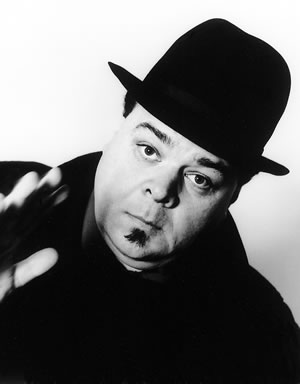
David Thomas was the oddest of vocalists; he
sounded like a turkey clearing its throat - or a man gargling Talking
Heads’ frontman David Byrne. His style was all quivering agitation
which gymnastically ignored an octave or two and ran the occasional
glottal Stop sign.
And then Thomas got really interesting.
When Pere Ubu, out of Cleveland, split up in the early-Eighties (later to reform, of course) he took off on an indescribably fascinating, challenging and demanding solo career singing what sound like demented fairytales and folksongs. He interspersed his albums with disarmingly strange spoken-word passages and generally delivered up noir-dance music for a particularly bad night in a roadhouse somewhere along the David Lynch highway.
His co-conspirators over the years have
been drummer Anton Fier - guiding figure behind the Golden Palominos
collective out of New York - and the acclaimed Anglo-folk guitarist
Richard Thompson, a man whose avant.-guitar skills find him cutting
like a blunt hacksaw blade through Thomas’ songs.
If there’s a connecting thread in
Thomas' oddball sounds it's in the Talking Heads-like percussive
quality and the same Tom Waitsean clank of barrel organ and monkey
down a dark alley.
There wouldn't seem to be a lot of call
for this music, but it’s one of those rare cases where the world
has caught up and David Thomas is suddenly somewhere nearer the
centre of the frame than he once was.
The five CD box set Monster – Thomas’
solo career between '81 and '87 – might be four and a half albums
more of Thomas than most people could take, but it is astonishing
stuff.
There are nightmarish visions, drifting
psychedelics, creaky accordion and trap drums, and a truly terrifying
live album where Thomas delivers up scary and strangely beautiful
versions of I Can't Help Falling in Love and the Beach Boys’ lovely
Surfer Girl.
It makes you reconsider the notion of
“singing”.
Whatever it is he’s doing (and it’s
probably not “singing" for most listeners), it communicates
powerfully, viscerally and with humour. This is the kind of box set
you extravagantly buy on spec, are briefly disappointed by, and then,
in giving it another go, find yourself mesmerised for months.
And after all that has preceded it –
from Tiny Tim and Bob Dylan to Yoko and Tagaq -- it also seems to make
sense.
It's that voice, Carruthers, that
voice. It haunts me still.
Anxious music for an anxious time,
perhaps?

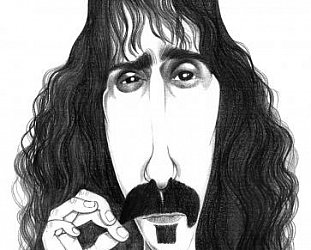

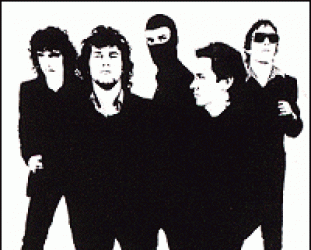
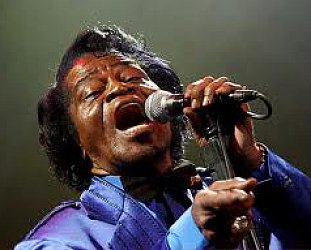

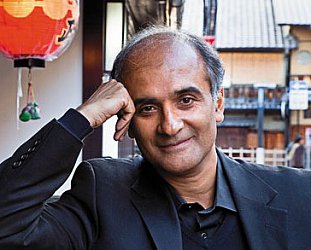
post a comment